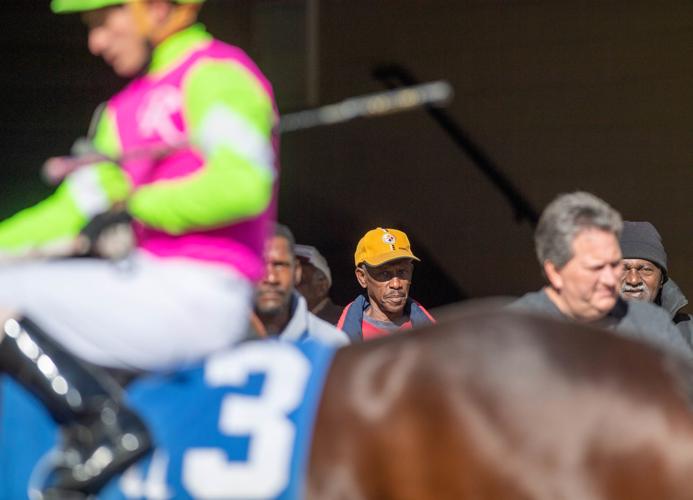For at least six years, the New Orleans Fair Grounds put horse manure, urine and untreated wastewater into the municipal drainage system, which sent the pollutants into the London Avenue Canal, Lake Pontchartrain, the Mississippi River and ultimately the Gulf of Mexico.
Now that's supposed to stop, because the Gentilly racetrack's owner, Churchill Downs Inc., has reached a settlement with the federal government to quit violating the Clean Water Act. The company agreed to pay a $2.8 million civil penalty and spend $5.6 million on construction and operational changes, the government said Tuesday.
The penalty is the largest ever paid by a "concentrated animal feeding" operation under the Clean Water Act. During a typical racing season, the Fair Grounds houses 1,800 horses or more at a time.
It smells like lots of stuff
“This consent decree will stop the flow of untreated process wastewater into the local sewer system, which leads to local waters used for fishing and ultimately Lake Pontchartrain, in a way that recognizes the challenges presented by the racetrack’s urban location.” said Jonathan Brightbill, principal deputy assistant attorney general in the Justice Department's Environment and Natural Resources Division.
Churchill Downs said it "has worked cooperatively and diligently with federal, state and local environmental agencies in New Orleans to develop a series of satisfactory resolutions to address wastewater and stormwater drainage ... and has agreed to meaningful measures, including $5.6 million of capital improvements over the next three years, to address the conditions and obligations under the consent decree."
The Fair Grounds' urban location, said the company "is challenged by extreme rainfall and poor natural drainage. These conditions are compounded by its sea-level elevation and an antiquated New Orleans wastewater and stormwater management system." Still, the company said, "Churchill Downs remains committed to protecting the environment and the health and welfare of the people of New Orleans and Louisiana."
As many as 500 racehorses left scattered across the state after Hurricane Laura tore up the stall area at Delta Downs racetrack in Calcasieu P…
The government's complaint alleged that the Fair Grounds violated the Clean Water Act and the track's Louisiana Pollutant Discharge Elimination System permit more than 250 times between 2012 and 2018. It is allowed to discharge horse manure, urine and untreated wastewater into the drainage system in the case of a "significant rain event" -- that is, 10 inches of rain falling in 24 hours -- but sometimes did so "after as little as a half-inch of rain, as well as in dry weather."
The Fair Grounds sits amid neighborhoods that the government considers environmental justice communities. In addition to the one-mile racetrack, grandstand and parking lots, it includes stables, horse stall barns and receiving barns, horse wash racks, horse walkways, manure storage areas and storage areas for raw materials.
As part of the settlement, the government said, the Fair Grounds will "implement best management practices and construction projects designed to eliminate unauthorized discharges and ensure compliance with its permit" and the Clean Water Act. It also will conduct sampling, monitoring and hydraulic modeling to help the company and the Environmental Protection Agency determine whether the remedial actions required by the consent decree eliminate unauthorized discharges. If the remedial actions are not successful, the company agreed to implement more changes.
Four thoroughbred racehorses have reportedly been euthanized over a span of six racing days at the Fair Grounds Race Course in New Orleans, pu…






